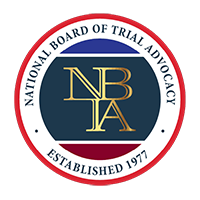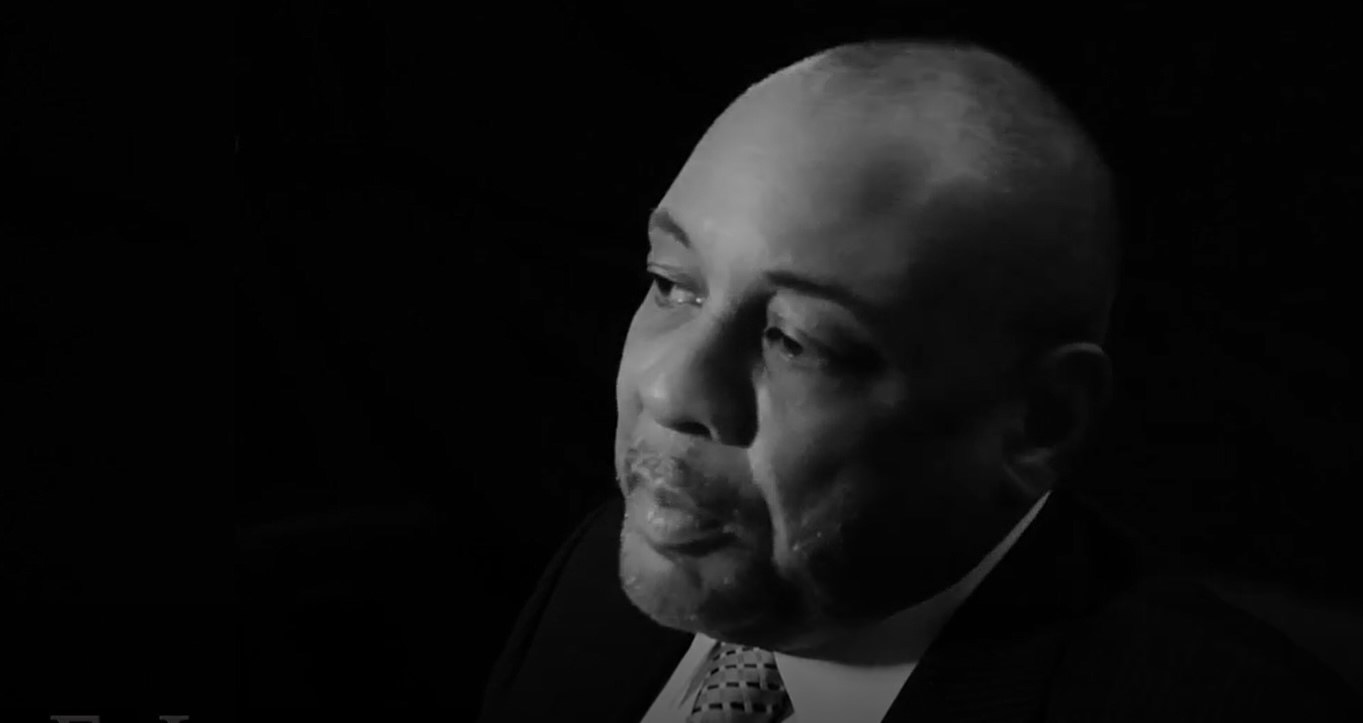Call Us Now
202-463-3030
Schedule a Free Consultation
Are you having issues with your workers’ compensation benefits after a workplace accident? Our team of Washington, DC workers’ compensation lawyers is here to assist. With more than 40 years of experience in personal injury law, our attorneys have comprehensive knowledge of the DC Workers’ Compensation Act, the claims filing process, and the documentation you need to submit to successfully claim your compensation.
Our firm’s award-winning attorneys have extensive experience in securing favorable verdicts for our injured clients, from successful workers’ compensation claims to multi-million dollar settlements. With our three named partners Patrick Regan, Salvatore Zambri, and Victor Long holding board certification in Civil Trial Law and Civil Trial Advocacy, and our attorneys named to prestigious directories such as Best Lawyers, Super Lawyers, and the Lawdragon 500 Leading Plaintiff Consumer Lawyers list, we provide professional and comprehensive support for all of your workers’ compensation queries and claims.
If you were injured on the job, contact the personal injury attorneys at Regan Zambri Long today. We are available 24/7, and an attorney will call you back. With us, you don’t have to worry about making errors that could delay your settlement. There are also no fees charged unless we win.
Complete this form and our team will get back to you as soon as possible







With nearly 200 years of combined experience to our name, our highly respected firm is well-positioned to address even the most challenging personal injury cases. Our strategic approach has translated into million-dollar recoveries for our clients. With over $1 billion in settlements won to date, our achievements include a $7.5 million premises liability action award for a client who suffered paraplegia injuries, and $1 million settlement on behalf of a worker who fell from a roof and sustained a traumatic brain injury. We have also assisted numerous clients with understanding the specifics of the workers’ compensation claims filing process, ensuring that they were able to claim the compensation they deserved.
MILLION
Wrongful Death Settlement
MILLION
MILLION
Wrongful Death Verdict
MILLION
Premises Liability Settlement
MILLION
Wrongful Death Settlement
MILLION
Wrongful Death Verdict
MILLION
Medical Malpractice Settlement
MILLION
Personal Injury Settlement
MILLION
Car Accident Settlement
When a worker is injured in a workplace accident, many times they fail to tell their employer for fear that they will lose their jobs. But laws have been put in place to prevent that from happening. It is the responsibility of your employer to provide workers’ comp benefits for their employees if an accident occurs while that employee is on the job.
Our DC workers’ compensation lawyer can explain what benefits are available to you. If your workers’ compensation claim has been denied, we can help you through the process, ensuring your medical bills and wages are paid as you recover. We offer free consultations to all injured workers, and you will not pay a fee until the case has been settled.
Workers’ compensation is meant to protect employees if they get hurt or become ill while on the job. The benefits are meant to provide medical expenses and lost wages to the employees as they recover. For example, if you are a delivery driver and get into a car accident while delivering a package, you can file for workers’ compensation benefits to cover your medical expenses and for any time you miss work because of the injury.
In Washington, DC, any business that has one or more employees is required to carry workers’ compensation insurance. Since DC is a no-fault jurisdiction, an employee is covered by workers’ comp, no matter who is at fault for the injury.
Most employees are covered by DC workers’ compensation; however, there are few exceptions, such as:

There are three types of injuries or illnesses which you can receive workers’ compensation benefits, as outlined by the DC Workers’ Compensation Act:
However, there are some instances when you cannot receive workers’ compensation:
There are four types of workers’ compensation benefits that employees can receive after being hurt on the job: medical benefits, disability benefits, rehabilitation benefits, and death benefits.
Medical benefits are meant to cover any medical costs associated with your injuries following a workplace accident. This can include hospital stays, medications, medical equipment, and home care costs. If you travel for any medical treatment, such as going to Baltimore for a lab test, these costs can also be included in your workers’ comp benefits.
If you are unable to work because of your illness or injury, workers’ compensation offers disability benefits to the worker. There are four types of disability benefits:
Much like medical benefits, rehabilitation benefits cover the cost of any rehabilitation services the employee receives. This includes physical therapy and other types of treatments to help the worker regain their health to where it was before the accident occurred.
If a family member dies from an illness or injuries from a workplace accident, workers’ compensation benefits can provide death benefits to the dependents of the worker. Dependents include the closest members of the worker’s family including the spouse and children. These benefits can cover funeral and burial costs for up to $5,000.
In addition, families can receive up to 50% of the deceased worker’s average weekly wage, with a maximum benefit of $1,521.74 per week. There is no time limit on how long surviving family members can receive death benefits.
According to the DC Code § 32–1505, workers’ compensation for disability or death cannot exceed your weekly wages as an insured employee in Washington, DC, or a total of $396.78 per week, whichever amount is larger.
Legally, you may claim disability benefit payments for up to 500 weeks for any one injury that causes permanent or temporary partial disability. If you wish to extend these payments, you may petition the Mayor of the District of Columbia to have your benefits extended for up to 167 weeks. You will need to be examined by an independent medical examiner selected by the mayor, who will ensure that your disability is causing ongoing whole-body impairment of at least 20%, as per the American Medical Association’s Guides to the Evaluation of Permanent Impairment.
Under the Act, you are also granted up to three years after your non-scheduled benefits have ended to reopen your case should your condition change.
A skilled DC workers’ compensation lawyer at Regan Zambri Long can help you determine how much workers’ compensation you are entitled to and whether you are eligible for an extension of your benefits as well.
Your first step following an injury at work is to inform your supervisor or employer as soon as possible. Failure to let your employer know about your injury can result in a denial of your claim. In Washington, DC, you have 30 days to inform your employer about the accident.
Once you inform your employer, seek medical attention. Even if you don’t think you’re injured at that time, getting checked out by a medical professional will help your claim in the long run. A doctor will be able to certify your injury is work-related, determine whether you can return to work, and recommend any further treatment.
When you are able to, you will need to complete the Employee’s Notice of Accidental Injury or Occupational Disease application (OWC Form 7). The form will need to be filed to the Office of Workers’ Compensation within 30 days of the injury. Make sure you provide a copy to your employer.
You will also need to complete the Employee’s Claim Application (OWC Form 7A) and submit that to both your employer and the Office of Workers’ Compensation within one year of your accident.
A third-party claim, also known as third-party liability, refers to any injury a worker receives because of the negligent actions of a third party, either an individual or business that is separate from your employer or place of employment.
Common examples of third parties include:
It’s important to note that injured workers are unable to file a third-party claim against an employer or co-worker who may have caused the accident.
The difference between a third-party claim and a workers’ compensation claim is the burden of proof. Workers’ comp claims are no-fault, meaning that the worker can collect benefits even if they are at fault for the accident. But in a third-party claim, the worker will need to show that the individual or business is at fault for the accident.
To prove fault, the following conditions must be met:
If you believe you have a third-party claim for work-related injuries, our workers’ compensation lawyer in DC is ready to assist you with your claim.
Our firm is passionate about protecting the rights of injured workers throughout Washington, DC. Our Washington DC workers’ compensation attorneys will provide you with a comprehensive understanding of your rights so that you can make well-informed decisions. We make ourselves available to our clients at all hours. At our firm, your workers’ comp matter will be treated as a top priority.
Regan Zambri Long’s many favorable achievements of our clients have earned us some of the legal industry’s most respected awards and accolades. Six of our partners have been featured in the 2025 Lawdragon 500 Leading Plaintiff Consumer Lawyers list, and seven of our attorneys have been named to Super Lawyers, with partner Salvatore Zambri added to the list of Top 10 Super Lawyers in Washington, DC, and Zambri, Paul Cornoni, and Patrick Regan also named as Top 100 Super Lawyers in Washington, DC.
Our work has also been recognized by Best Lawyers, with seven of our lawyers selected, and our firm featured on Best Law Firms as well. Best Lawyers has also honored Patrick Regan as Lawyer of the Year for Mass Tort Litigation (2022 and 2024) and Medical Malpractice Law (2020), Salvatore Zambri as Lawyer of the Year for Product Liability Litigation (2020), and Paul Cornoni as Lawyer of the Year for Workers’ Compensation (2026).
Workers’ compensation laws are very complex, but our team of legal experts has the knowledge and expertise needed to simplify the filing process and secure your compensation. If you’re having trouble with your employer, get the help you need. Contact a skilled workers’ comp lawyer at Regan Zambri Long today for a free consultation.

It depends on the type of benefits you receive:
Generally, it takes two to three weeks before you start receiving your benefits. During that time, you may be contacted by a claims administrator who will want an account of what happened and review your medical records. The administrator may also speak with other employees and supervisors to learn more about the accident.
Light-duty work refers to work that is physically or mentally less demanding than your current job duties. It can be either temporary or permanent, depending on your injury. It gives the injured worker a chance to go back to work while healing from their injury.
It is up to your employer to either provide light-duty work for you or wait until you are healed. If your employer does offer light-duty work, you will receive your regular salary instead of relying solely on workers’ compensation benefits.
Again, this depends on what type of benefits you are receiving. If you are receiving temporary partial or total disability payments, you will receive these benefits until the doctor allows you to return to work full-time. Temporary disability payments may also stop after 500 weeks, though it is possible to petition for an additional 167 weeks if needed.
If you received a permanent partial disability, the amount of time you receive compensation depends on the severity of your injury. For example, if you lost one of your legs, you may receive up to 288 weeks of benefits as opposed to only receiving 144 weeks for a 50% disability of your leg.
For permanent total disability, this will continue for the rest of the employee’s life, which is why it’s reserved for only severe instances. The benefits the worker will receive are two-thirds of the worker’s average weekly earnings.
The short answer is no, you cannot file a lawsuit against the employer for your work accident. However, there are times when you can file a personal injury lawsuit against a third party whose negligence caused the accident. Known as a third-party claim, it allows the injured party to seek compensation for any pain and suffering caused by another individual or company. For example, if a machine operator lost their hand following a malfunction caused by a defect, the operator may be able to sue the manufacturer for the faulty machine.
Once the insurance carrier and employer accept your claim, you will receive your first benefit payment within 14 working days. Benefits will continue every two weeks as long as you are medically disabled. Remember, only your physician can determine when you are healthy enough to return to work, not your employer or the insurance company.
If your claim is denied, your first step is to speak with an experienced Washington, DC workers’ compensation attorney. They can walk you through the appeals process and help you with your claim.
After the claim is denied, your attorney will request an informal conference with the Office of Workers’ Compensation (OWC). The agency will try to mediate the claim to settle. If a settlement cannot be reached, the worker has 14 days to file a Formal Hearing with the OWC. A judge will then issue a Compensation Order within 20 days of the hearing.
If you still having trouble with your claim, your attorney can file an Application for Review with the Compensation Review Board within 30 days. If there is still a dispute, you can appeal the decision to the D.C. Court of Appeals within 30 days.
Remember, if the claim is being disputed, you will not receive any benefits until it’s been resolved.
Many employees are afraid to file a workers’ comp claim for fear of retaliation. They falsely believe that their employer can fire them because they got into an accident at work. But this cannot happen. According to DC law, an employer cannot discharge or discriminate against any employee who filed or is attempting to file a workers’ compensation claim. In addition, if a co-worker is testifying about your injury during a workers’ compensation hearing, your employer cannot retaliate against that employee.
It’s also advisable not to quit your job before filing a workers’ compensation claim. Quitting before you file a claim can be difficult to prove the validity of your claim.
Have you or your loved one sustained injuries in Washington DC, Maryland or Virginia? Regan Zambri Long PLLC has the best lawyers in the country to analyze your case and answer the questions you may have.